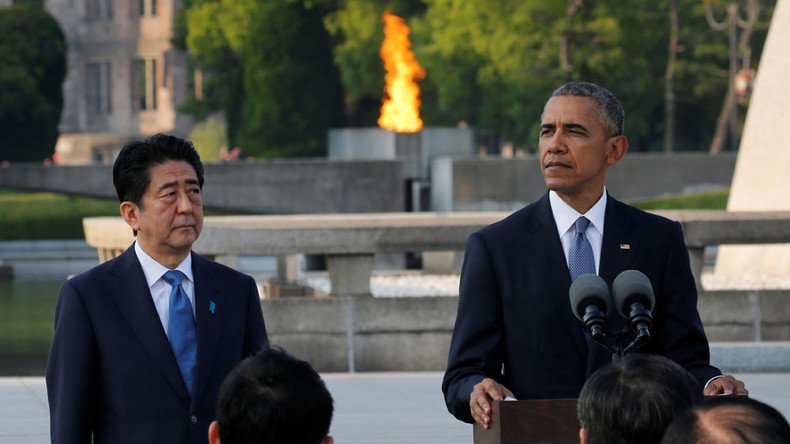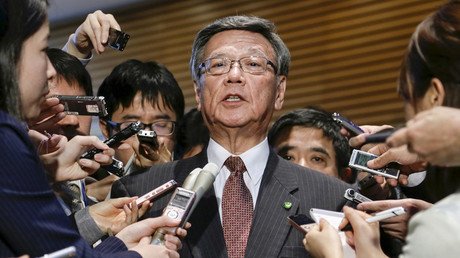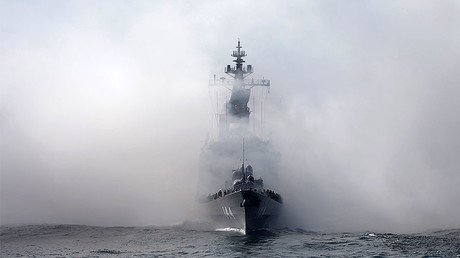‘America & Japan are imperialist countries guided by special interests’

It is doubtful the Japanese government will apologize to the US for Pearl Harbor, particularly after Obama offered no apology for Hiroshima and Nagasaki, says Richard Becker, anti-war activist from the ANSWER Coalition.
Japan's Prime Minister Shinzo Abe is scheduled to arrive in Hawaii this week for a two-day visit to commemorate the victims of Pearl Harbor and promote peace.
He will become the first Japanese leader to visit Pearl Harbor and attend the memorial there. But Abe won't be apologizing for the attack on the US naval base on December 7, 1941, an act that pulled the United States into World War II.
Abe's visit will come just a few months after Barack Obama became the first sitting US president to officially visit a Hiroshima memorial in Japan.
While visiting Hiroshima, Obama paid respects to the victims who perished after the US dropped an atomic bomb on the industrial city on August 6, 1945 (followed three days later with another bombing of Nagasaki), but did not apologize for the attack.
RT: Shinzo Abe didn't plan to visit Hawaii. Why do you think he changed his mind? Is it in response to Obama's visit to Hiroshima this May?
Richard Becker: I think partly this is a response to the visit by President Obama to Hiroshima and Nagasaki earlier this year. And also it is a way to boost Abe's standing inside Japan. But also I think we have to see that Japanese-US relations are at a new point, potentially brought about by the statements by President-elect Trump who talked about how Japan should arm itself with nuclear weapons. This is really a break with the Washington Consensus. Since WWII, Germany and Japan – the two main defeated countries that the US and its allies – the Soviet Union, Britain and others faced – should not have nuclear weapons, which should be protected by the US nuclear arsenal.
What Trump has done has set in motion potentially a series of events that could lead in a very different direction, and part of the reason that Abe maybe coming at this time is precisely because of that development.
RT: How will Trump's coming presidency likely affect the countries' relations? He's already said that he is against US paying for 'security umbrella' for Japan.
RB: It is very hard to say because Trump has said - and kind of almost off the cuff - that Japan should arm itself with nuclear weapons and the right wing in Japan, the extreme right-wing and nationalist faction there, wants Japan to attain nuclear weapons. There is also I think a consideration in the Japanese ruling circles that because of the fact that Trump is coming in and he has made these kind of statements and has brought into question the dependability of the US as an ally that Japan could turn in a different direction, that could turn toward seeking more of an alliance, for instance, with Russia. We aren't predicting that, but that's certainly a possibility given the course that Trump has been on during the campaign.
RT: Japan and the US have been close allies for a long time now, but why did it take more than 70 years for both countries to pay such reconciliatory visits?
RB: Part of the reason is that there has been an alliance that has existed since the end of WWII. There are still more than 50,000 US troops. Japan is still occupied by the US and particularly Okinawa – the southern islands of Okinawa - suffer under that occupation. But it has been a very unequal relationship as well. It is not that Japan is a client or a colony or anything like that despite the occupation, but the US has been a dominating, occupying power there. But there has been this trade-off that said that as long as Japan was under the US security umbrella, it didn’t need to get its own nuclear weapons, it didn’t need to pursue a different course in foreign policy. And we also have to take into account that there has been very heavy propaganda inside the US for many years against Japan, and demonizing Japan and so that has made the relationship difficult.
RT: During his visit, Obama didn't apologize for bombing Japan. Should Japan apologize for its attack on Pearl Harbor?
RB: I think it is clear that Prime Minister Shinzo Abe is not going to apologize for Pearl Harbor. And of course, there was such an immensely greater death toll and civilian death toll that took place in Hiroshima and Nagasaki and President Obama pointedly did not apologize for that; he expressed regret for war in those kind of vague statements. And of course, Imperial Japan’s crimes in WWII were much more severely felt by the Korean people, who were colonized, the Chinese people – part of China was colonized and suffered under sexual slavery for so many tens of thousands of women in those countries – such extreme brutality. And the Japanese government has not really made an apology for those war crimes, so the expectations that they would do so in regard to the US and Pearl Harbor, even though the US is much more important to Japan at this point. But you can see that they probably was not in the cards. Particularly after Obama did not apologize for Hiroshima and Nagasaki.
RT: What do you think relations are like between Abe and Obama personally? Their body language doesn't indicate they are great.
RB: I don’t really know, it is very hard to say in that regard. And I am not sure that it matters a great deal what the personal relations are. Far more important are what the national interests are. And both Japan and the US are imperialist countries, which are governed not by friendships - either between peoples or individual leaders - but by interests.
The statements, views and opinions expressed in this column are solely those of the author and do not necessarily represent those of RT.














